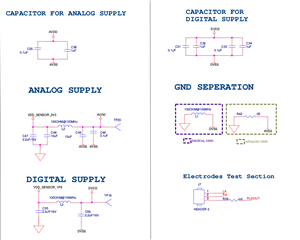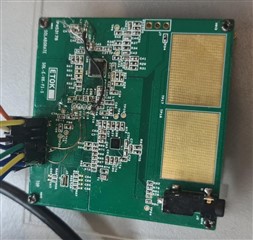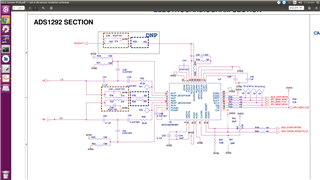Other Parts Discussed in Thread: ADS1292R, ADS1292
We are interfacing the ads1292R ic with snapdragon processor for ecg application. We have written the driver and application to get both channel data. We are reading data on the interrupt with all default chip configurations.
For channel 1 data, we are getting continuous changed values and for channel 2 data, we are getting values changed only when we put fingers on pcb electrodes.
I have following queries related to the ADS1292R chip functionality.
- Is there any specific use or application for particular channels?
- After getting raw data from device, is there any algorithm need to applied in code to calculate ecg values? As we are not getting graph like actual ecg.
- Please share if there is any specific guide to calibrate the sensor.
Attaching our design pictures. Let me know if you need more information.




